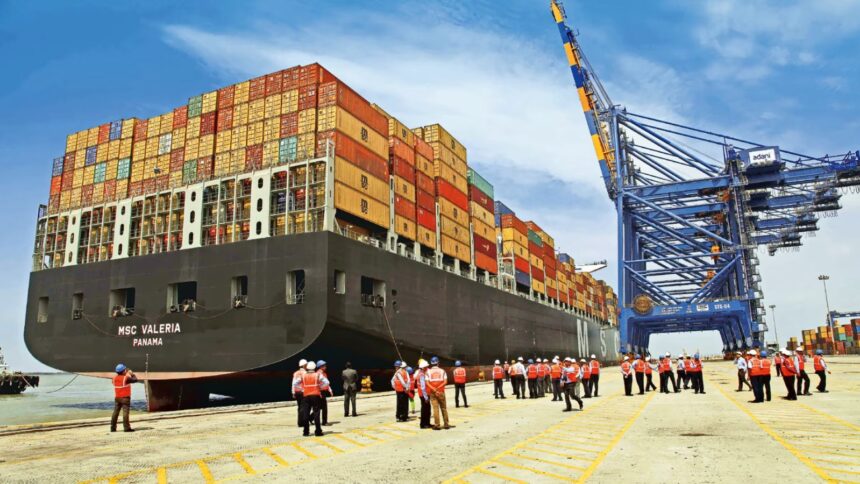Following the Russia-Ukraine conflict, the escalating tensions between Iran and Israel have further driven up marine cargo insurance premiums, amid growing war-related risks and the potential damage to global shipping and trade routes. Marine cargo insurance premium has now gone up by 15 per cent to 30 per cent and insurers are now charging an additional 0.15 per cent of the cargo’s value, insurance sources said.
The rise in premium is expected to impact importers of commodities and exporters from ports in Gujarat and Maharashtra.
They said Red Sea exposure premiums began rising after the Russia-Ukraine war, well before the recent Iran-Israel conflict. The earlier escalation had already led global underwriters to reevaluate maritime risks, and the latest surge in tensions has further intensified concerns—particularly in the Red Sea, a vital corridor for global oil and cargo trade.
“Marine cargo insurance premiums have since increased by 15 per cent to 30 per cent, depending on the cargo, route, and terms. Specifically, insurers are now charging an additional 0.10 per cent to 0.15 per cent of the cargo’s value to cover war risks, hijacking, piracy, and SRCC (strikes, riots, civil commotion) for shipments passing through the Red Sea,” said Umang Shah, Co-founder of Qian Insurance.
For example, a Rs 50 crore shipment that previously had a base premium of Rs 1.5 lakh now costs around Rs 6.5 lakh with Red Sea war coverage, a significant rise that can strain the finances of small and medium enterprises (SMEs). “From an India lens, this impacts both importers of critical commodities and exporters from ports like Gujarat and Maharashtra, who are now navigating rerouting challenges, cost pressures and delays,” Shah said.
Insurance officials said a complete blockade of the Strait of Hormuz is unlikely. “A major portion of the Strait of Hormuz falls within Omani territorial waters, which complicates unilateral actions. From my perspective, while heightened tensions may lead to increased premiums and cautious routing, a full-scale blockade is operationally and diplomatically difficult to execute,” said an official of an insurance company.
“We’ve seen a marked rise in queries from exporters and freight firms looking to understand war-risk extensions and policy exclusions. Many still overlook vital protections like ‘War and SRCC coverage in order to save premiums, which can result in unrecoverable losses,” Shah said. In today’s volatile environment, businesses with international exposure should seriously consider comprehensive marine insurance in advance, before the next conflict spikes premiums further. Insurance must move from being a checkbox to a strategic buffer. Tailored policies with adequate riders and comprehensive coverage will be key to protecting India’s trade backbone.
Indian insurers reported a gross premium underwritten of Rs 5,535 crore in FY2025 in the marine insurance segment. Of this, Rs 3,940 crore was for marine cargo insurance. Major marine cargo insurers in India are: AIG, New India Assurance, ICICI Lombard and Bajaj Allianz. GIC Re is the only reinsurance company from India.
The Israel-Hamas war in 2024 exacerbated risks facing maritime trade flows, given the deteriorating security situation in the Red Sea. Heightened risk concerns forced insurers to tighten their underwriting policies. The Joint War Committee (JWC), a syndicate of London’s top insurers, reinsurers and underwriters, then expanded the ‘high risk zone’ in the Red Sea, pushing insurers to charge higher premiums in order to sustain positive claim loss ratios.
Marine insurance provides coverage for goods, ships and other transport means against risks like damage, theft, or loss during transit. The policyholder pays a premium based on the value of the shipment and the associated risks. In the case of a covered incident, the insured files a claim, and the insurer compensates for the loss or damage as per the policy terms. Marine insurance can be customized to include coverage for specific routes, cargo types, or additional risks like piracy. This ensures businesses safeguard their financial interests during domestic or international trade.








